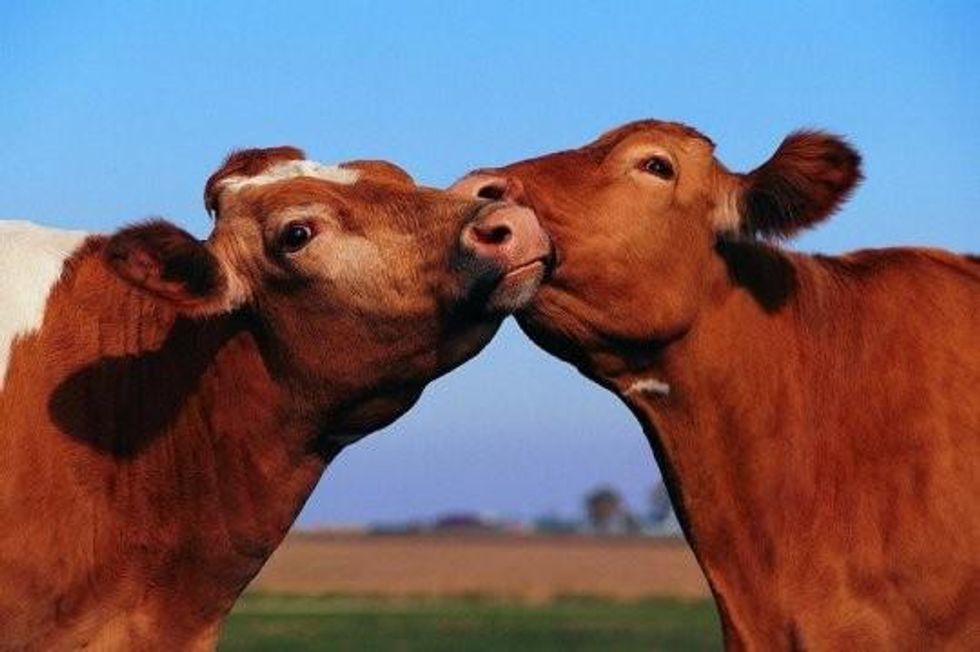A diverse coalition filed a federal lawsuit on Monday to overturn Idaho's recently enacted 'ag-gag' law -- legislation critics say makes 'documenting cruelty the crime, rather than the cruelty itself.'
Signed by Idaho Governor C.L. "Butch" Otter at the end of last month, the law criminalizes those who secretly document abuse of animals at agricultural facilities.
Following the law's enactment, Matthew Dominguez of The Humane Society of the United States wrote:
[W]itnessing and documenting cruelty is now the crime, rather than the cruelty itself. Even employees and journalists who document misconduct could face jail time, whether it's mistreatment of animals, food safety concerns, sexual harassment, embezzlement or environmental crimes. Needless to say, this law poses serious threats to constitutional freedoms of speech and the press. It also casts even further distrust in the minds of Americans about how animals are treated in our food system.
The plaintiffs in the lawsuit, which include the Animal Legal Defense Fund (ALDF), the American Civil Liberties Union of Idaho, Idaho Concerned Area Residents for the Environment, the Center for Food Safety and the journal CounterPunch, charge that the new law is unconstitutional because it criminalizes free speech and freedom of the press.
"What concerns us is that when the government tells us what we can do and can document, we lose not only freedom of speech but freedom of thought," Leo Morales of the ACLU of Idaho said in an interview with Common Dreams.
Additionally, Morales continued, the problem is that the law gives preferential speech to the agricultural industry over the speech of those challenging that industry. The law goes against the Constitution because both are supposed to be protected speech, yet the government is choosing to protect one over another.
As the Center for Food Safety stresses, the law also jeopardizes public health.
"In the absence of effective government regulation, private, undercover investigations of the kind outlawed by Idaho's 'ag gag' law fulfill the much-needed role of overseeing the safety of our food supply," stated Paige Tomaselli, senior attorney with the Center.
"Such investigations are currently the public's best defense against foodborne illnesses caused by diseased and contaminated animal products. Government inspectors have proven time and again to be incredibly ineffective at stopping food safety violations, and in some instances purposefully turn a blind eye so that they can continue," she stated.
"The Idaho law is deeply distressing because it is aimed entirely at protecting an industry, especially in its worst practices that endanger people, at the expense of freedom of speech. It even would criminalize a whistle-blower who took a picture or video of wrongdoing in the workplace," adds Professor Erwin Chemerinsky, constitutional law expert and dean at the University of California, Irvine School of Law, in a statement issued Monday. "I am confident that this law will be struck down under Ninth Circuit and Supreme Court precedents," he stated.
___________________

